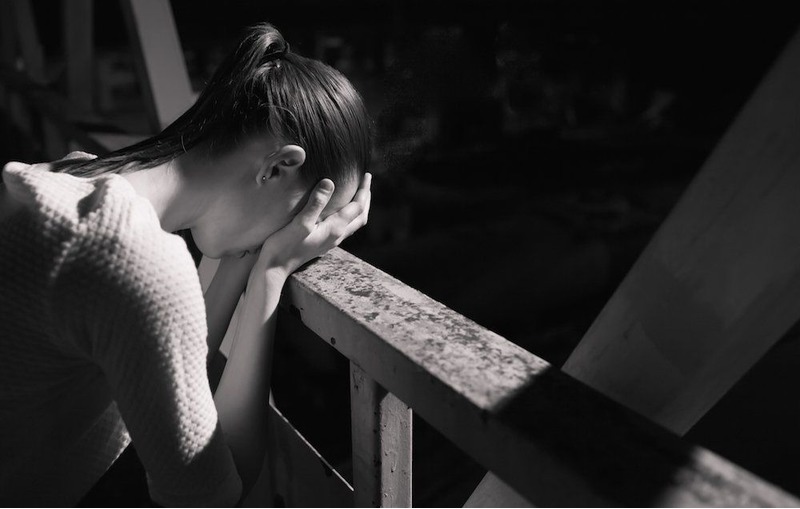
There's no data to back claim of 'skyrocketing' suicides during shutdown
Are COVID-19 business restrictions causing U.S. suicides to soar?
Tim Murtaugh, the communications director for President Donald Trump’s reelection campaign, made that claim during a May 26 interview on Newsradio WRVA in Richmond.
Murtaugh has deep Richmond connections, having worked in the city as television reporter and as a spokesman for the Republican Party of Virginia, former Attorney General Jerry Kilgore and several statewide GOP campaigns. Lately, he’s been a regular guest on conservative Virginia radio shows, giving updates on Trump’s campaign.
On May 26, Murtaugh defended Trump’s demands to reopen the economy, saying the shutdown is causing its own death toll.
«You cannot shut the economy down and have it be dormant for an extended period of time,» he said. «That comes with significant health risks of its own; known health problems that we will get, never mind that we see suicide rates skyrocketing now because people are in despair, and some of that is economic pressure on people. We know that to be the case. So we have to get our economy moving again.»
Fact checking Murtaugh’s claim, we found that mental health experts are deeply concerned that the sharp economic downturn could lead to more suicides — particularly if there is a long period of high unemployment. But there is no broad evidence that U.S. suicides have increased this year, let alone skyrocketed, as Muraugh says.
The Centers for Disease Control and Prevention keeps national suicide statistics, a lengthy process that requires verification of reported self-inflicted deaths. The latest data is from 2018 — more than a year before the first COVID-19 death occurred in the U.S. Suicide statistics for this year will be ready in 2022.
«It’s too soon to know whether COVID-19 is associated with suicide increases,» Courtney Lenard, a CDC spokesperson, told us.
«There is no evidence that suicide rates are increasing,» said Jerry Reed, senior vice president of the Education Development Center, a global nonprofit that studies suicide and other mental health issues.
Murtuagh’s backup
We asked Murtaugh for proof of his claim, and he sent us three anecdotal news stories.
A May 21 TV report from KGO in San Francisco featuring Dr. Mike deBoisblanc, head of the trauma department at John Muir Medical Center in Walnut Creek, Calif. He called for an end to coronavirus quarantining, saying he’d seen «a year's worth of suicide attempts in the last four weeks.»
A May 25 TV report from KIMA in Yakima, Wash., saying the county has seen seven suicides in the last 10 weeks — a 30% over the same time last year. «I can't speculate to the reason why,» said Coroner Jim Curtice.
An April 29 article from the Daily News in New York saying there had been 16 suicides in the borough during the last six weeks. In comparison, there were 17 suicides in Queens during the first four months of 2019. «"There is a mental health component to this health crisis,» said Queens District Attorney Melinda Katz.
Murtaugh also sent us articles from The Washington Post and U.S. News & World Report with an array of mental health experts voicing concern that the poor economy and social distancing brought on by COVID-19 could cause increased depression and anxiety leading to suicides. Neither article said, however, that suicides have increased this year, and both articles quoted experts hoping no surge will come.
«Could the numbers go up? Yes, but it isn’t inevitable. We know suicide is preventable,» said Christine Moutier, chief medical officer for the American Foundation for Suicide Prevention, told The Post.
Research has shown a connection between extended periods of high unemployment and suicide. A Rutgers University study of the Great Recession from 2007 to 2009 found that for every 1% increase in the unemployment rate, there was a 1.6% in the suicide rate.
Reed told us that calls to national suicide hotliness have increased in recent months, but said he’s hopeful that’s a good sign that more people are seeking counseling.
Our ruling
«You see suicide rates skyrocketing now,» Murtaugh said, in amplifying Trump’s call for an end to COVID-19 business restrictions that have hurt the economy.
He addresses a subject of great concern because suicide rates historically have gone up when there were prolonged increases in unemployment rates.
But Murtaugh is way ahead of himself. There’s no way to know whether suicides are rising this coronavirus year — let alone «skyrocketing» — because national statistics aren’t available and won’t be for some time.
The burden is on Murtaugh, Trump’s top campaign spokesman, to provide broad evidence of his unqualified claim. He comes up short.
So we rate Murtaugh’s statement False.
Image Upload
Add image